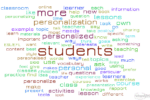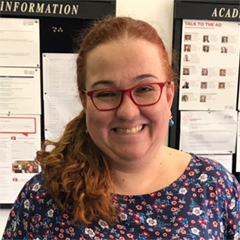Chat GPT: The death of writing lessons as we know them?
The fact that Artificial Intelligence (A.I.) has the potential to revolutionise education is neither theoretical nor futuristic at this point. Every year a new software is launched with the promise to shake our classroom practice to its foundation. In the last few months, the buzz has revolved around OpenAI’s latest version of the text-writing bot Chat GPT.
Although it might not bring as much newness to the table as many are led to believe, we can’t overlook some of the questions that pop into our minds: Is this the end of my writing lessons? Will my students give up on writing altogether?
What can Chat GPT do?
As its abbreviation indicates, Generative Pre-training Transformer, Chat GPT is a generative language model. What does this mean? Whereas traditional computer programs respond to a series of coded commands, this type of software is able to produce language in response to language. Chat GPT consists of a collection of massive amounts of language, so it is able to recognise and reproduce common language patterns.
By reproducting regularities in speech, it can spew out a text in any style you wish, from a poem to a letter of application, and everything in between. This means your student could type “write a for and against essay about social media”, and they would be done with their homework in a few seconds.
Friend or foe?
I know what you’re thinking: “It’s only a matter of time before my students start using Chat GPT for their assignments. I’ll never read a text written by my students again.” I’d be lying if I said I didn’t think the same. Fortunately, a Psychology professor did us a huge favour when he put Chat GPT through its paces by giving it a question he would ask his third-year students.
He specifically asked the software to discuss peer-reviewed literature, in particular one paper read by his students. Not only did Chat GPT’s response lack detail, but it used information from a different paper. If a student had used Chat GPT with bad intent for this assignment, they would have failed. “The essay is very much alive,” concluded the professor in a tweet.
Now, is this a sign we can all put to bed our concerns about Chat GPT and carry on as usual? I’d say we shouldn’t dismiss the software’s powers all at once. Although it may be not as skilled as an expert writer, it can be used as a pedagogical tool that could be the trump card students need to get started. In this way, this kind of text-writing bot can help solve the problem of “blank page anxiety” by providing a jumping-off point, comparable to using a calculator while working out a math problem.
Will A.I. take our jobs?
Chat GPT may not be the end of our writing lessons, but it certainly represents an opportunity to rethink the way we help students develop their skills. While it may be able to generate an acceptable, albeit generic, for and against essay, it seems less capable of creating and supporting a more original thesis based on class discussions and focused research carried out by engaged learners.
If we simply wish to prevent students from using it for writing assignments, we can start asking them to write in class more often. However, if our goal is to provide students with the chance to create and transform knowledge, there is no reason to believe A.I. has more power than we allow it to possess. Chat GPT invites us to analyse what we have been doing so far, but the bot isn’t in control; we are.





